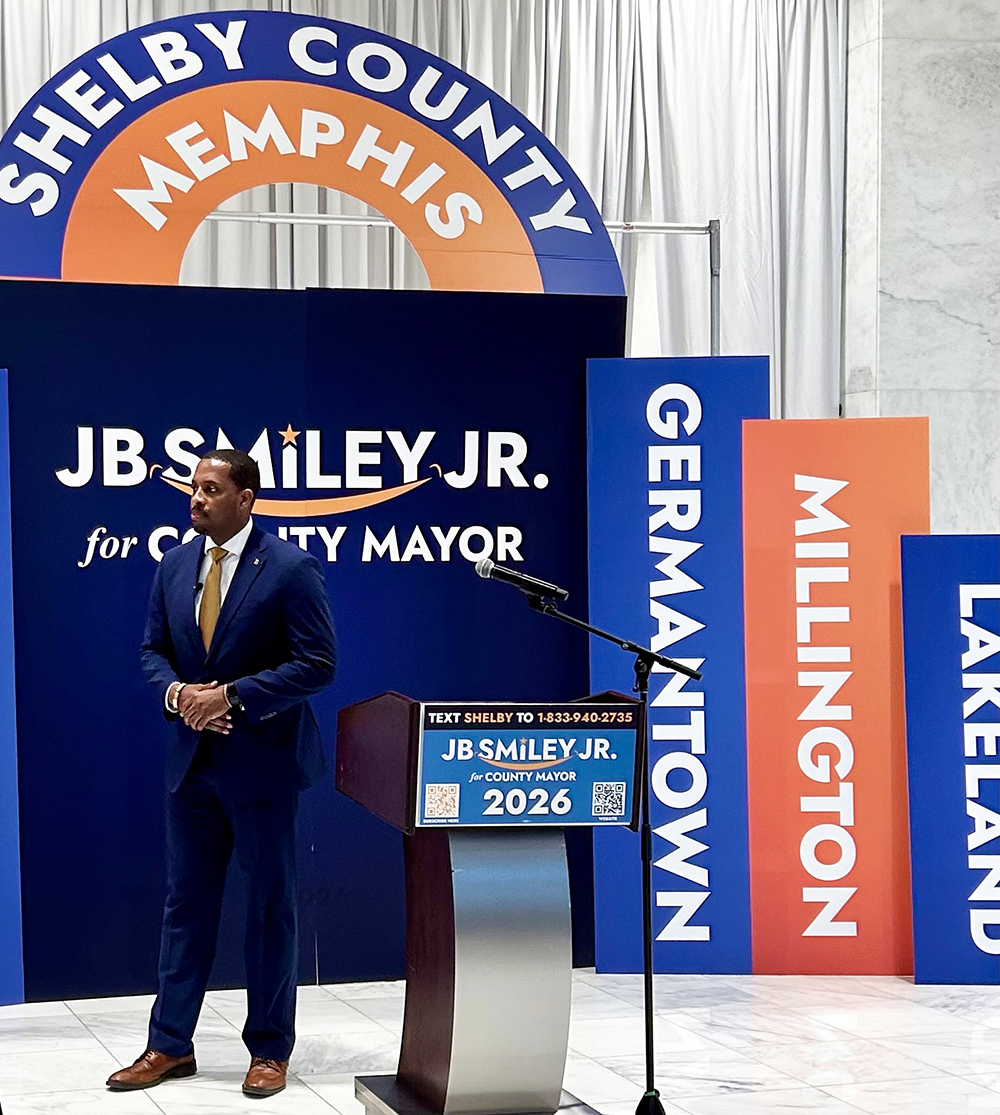Nothing official has occurred to signal the beginning of the 2026 Shelby County election, but the principal contest for that election — the race for county mayor — has begun all the same.
Early salvos have been fired by contenders JB Smiley, the city councilman who, as council chair, challenged state disapproval of local gun-safety ordinances, and by Mickell Lowery, who chaired the county commission during a time of resolute action toward building projects.
Both Smiley and Lowery have been working the telephone lines feverishly in fundraising appeals, and each has produced professional-quality videos by way of introducing themselves to the public.
Smiley has also held a lavish public kickoff at which he vowed to provide a level of activist leadership which he decried as having been missing on the local scene in dealing with such phenomena as rampant crime and job and population loss.
Other candidates, all Democrats so far, will surely be stepping up their efforts, mindful that the fundraising reports for the second quarter of the year, due June 30th, will be the first de facto measure of their respective places in the race.
These hopefuls include County Assessor Melvin Burgess, county CAO Harold Collins, Criminal Court Clerk Heidi Kuhn, and businessman philanthropist J.W. Gibson, among others.
A full year in advance of the primaries for county mayor, the race is on.
• During the late legislative session of the Tennessee General Assembly, most public concern about the fate of Memphis-Shelby County Schools (MSCS) turned on a pair of bills — one in the state Senate, another in the House — that would transform the independence of the school board by saddling it with oversight from a state-appointed advisory board.
Both of the two similar bills resulted from exasperated reactions by Republican House Speaker Cameron Sexton and other state officials to the apparent chaos of the internal civil war between now deposed school Superintendent Marie Feagins and the MSCS board, which fired her after Feagins had served only a few months.
As it happened, the legislative session ended before the House and Senate versions could be submitted to joint conference that could have ironed out their differences and produced a single bill.
So both bullets were dodged by MSCS, and the so-called state takeover was averted, at least until the next legislative session when the two slightly different versions will likely be successfully merged and reconsidered.
But meanwhile two other developments will be moving school board elections ever further into an overtly political status with partisan overtones.
One factor is the successful passage of SB 1336/HB 1383, which ties school board elections to the same four-year election cycle as county commission races and submits them to the same set of election protocols, including term limits limited to a pair of four-year terms.
Gone is the staggered scheduling of school board elections at two-year intervals, the effect of which was to isolate board elections from the ongoing political circumstances of other races.
The other major development affecting both MSCS elections and school board elections of the county’s six suburban municipalities is the recent decision of the steering committee of the Shelby County Republican Party to petition the Election Commission to permit partisan primaries in school board races, in accordance with enabling legislation passed in the 2021 special session of the General Assembly.
In the immediate wake of that legislation four years ago, neither MSCS nor any of the suburban school systems had evinced an interest in partisan elections.
But now that the local GOP has moved to hold such elections, partisan primaries would seem to be on their way, and, just as was the case, back in 1992, when Republicans began holding primaries for county elections, Democrats will almost certainly be forced to follow suit.
